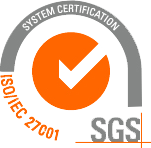SKC
-
CCorporation
 A leading company that strive for the world’s best.
A leading company that strive for the world’s best.
-
CCreation
 Global ESG material solutions company
Global ESG material solutions company
-
CCommunication
 SKC is making efforts to create a better future for all of our partners.
SKC is making efforts to create a better future for all of our partners.
-
CCareer
 SKC is making efforts to create a better future for all of our partners.
SKC is making efforts to create a better future for all of our partners.
홈
Corporation
Sustainable Management
Human Rights Management
Human Rights Management
Declaration of Human Rights
SKC bases its business operations on the SKMS which manifests SK Group’s management philosophy and corporate culture, defines the happiness of its people as its business purpose, and endeavors to fulfill its critical role in creating happiness of key stakeholders including customers, business partners, shareholders, and society at large. We are evolving phase by phase into an ESG-conscious material solution provider in order to promptly respond to customers’ needs and ensure their success and, by extension, mankind’s growth, promoting a corporate culture built around respect for human rights based on the belief that people are the most important resource of a business organization.
To uphold human rights in its business, SKC will comply with global human rights/labor standards and guidelines including the Universal Declaration of Human Rights, the UN Guiding Principles on Business and Human Rights (UNGP), and the UN Global Compact (UNGC) to name a few.
With human rights policies informed by such international human rights standards, SKC will do its best to ensure that not only its people but also investees/business partners respect human rights, to prevent risks to human rights from arising out of business activities, and remove/mitigate potential risks to human rights attributable to the characteristics of relevant stakeholders and manufacturing industry.
To uphold human rights in its business, SKC will comply with global human rights/labor standards and guidelines including the Universal Declaration of Human Rights, the UN Guiding Principles on Business and Human Rights (UNGP), and the UN Global Compact (UNGC) to name a few.
With human rights policies informed by such international human rights standards, SKC will do its best to ensure that not only its people but also investees/business partners respect human rights, to prevent risks to human rights from arising out of business activities, and remove/mitigate potential risks to human rights attributable to the characteristics of relevant stakeholders and manufacturing industry.


Code of Conduct & Its Applicability
SKC people will fulfill their responsibilities for upholding human rights in business operations and comply with the SKC Human Rights Guidelines when working with stakeholders. In addition, we will encourage all our stakeholders to respect our commitment to human rights, and where our human rights management framework conflicts with local legal/regulatory instruments, prioritize compliance with such local instruments and amend/modify our specific policies in reflection of the laws/regulations of applicable countries and the needs of relevant industries.
-

Ensure occupational safety
Check facilities, equipment, tools, etc. at workplace regularly and develop appropriate measures to prevent risks of bodily/mental injuries as well as follow-up support strategies to ensure safe working environment for SKC people. -

Protect human rights of local residents
SKC people take care not to infringe upon the human rights of local residents and protect their rights to health and safety and freedom of residence. -

Non-discrimination
Do not discriminate SKC people without reasonable reasons on the account of their gender, race, ethnicity, nationality, religion, disability, age, family status, social status or political belief, etc. in terms of recruitment, employment, promotion, training, wage, employee welfare, fostering corporate culture where people’s diversity is respected. -

Comply with work hours
As for regular work hours, overtime, break time and holidays, comply with whichever is stricter between applicable international standards or labor laws/regulations in each country or area where applicable business site is located. -

Prohibit sexual harassment and bullying at work
Prohibit all conducts inflicting sexual humiliation such as acts of sexual harassment or sexual assault at work and ban all bullying conducts inflicting physical/mental pain using superior status or relation at work. -

Prohibit forced labor
Do not force labor against an employee’s free will by enforcing mental/physical restriction in return for recruitment or employment and do not keep personal documents of employees on condition of employment. This requirement shall be complied with by all business partners dealing with SKC. -

Say no to child labor
Prohibit child labor as defined in applicable laws in principle, a requirement which shall be complied with by all business partners dealing with SKC. -

Guarantee freedom of assembly and right to collective bargaining
Guarantee freedom of assembly and right to collective bargaining under labor laws/regulations of each country or area, and do not subject employees to disadvantages or discrimination on the account of affiliation with or establishment of trade union, etc.
SKC people controls risks to human rights regularly under internal human rights policies and systems and communicate outcomes with stakeholders to uphold the human rights of all stakeholders and mitigate such risks. SKC’s human rights protection department enforces human rights risk control system, reviews human rights control procedures regularly and modifies such system and procedures in reflection of changes in and out of the Company.
Risk Control Process

- Check & assess human rights risks
- Mitigate human rights risks
- Disclose human rights status
Governance
SKC manages/oversees human rights status via committees attended by its top decision maker and invitees’ decision makers or meetings moderated by the decision maker of the human rights protection department. Roles and responsibilities of such committees and human rights protection department and contacts therein are as follows:
-
Human Rights Protection Department
- Develop/amend human rights policies
- Develop/implement human rights promotion plan
- Assess & mitigate human rights risks
- Run grievance resolution channel
- Provide human rights training and communication with internal/external stakeholders
-
Human Rights Committee
- Review developed/amended human rights policies
- Provide comments on HR systems, regulations, etc.
- Recommend actions for human rights risks
- Investigate human rights violation and deliberate on possible remedy
-
Management Leadership/BoD
- Designate a chief officer for human rights
- Monitor status regularly and discuss issues
- Provide feedback on human rights promotion
Reporting & Handling of Human Rights Violation
The following grievance resolution process is in place to deal with all issues leading to violation of human rights of SKC people and stakeholders.
For reports of human rights violation, we study possible remedies as advised by legal counsel and in reference to judicial precedents, in-house regulations and history of past practices, etc. After a report is received, facts are established by a series of interview and fact-finding study, and where a human rights violation in issue is very likely to have considerable impact on the rights and freedom of the victim or spill over into external risks, possible remedies are discussed in a relevant committee meeting.
All reports and interviews are kept confidential and utmost care is taken to ensure that a reporter’s identity and reporting details are protected and kept confidential.
For reports of human rights violation, we study possible remedies as advised by legal counsel and in reference to judicial precedents, in-house regulations and history of past practices, etc. After a report is received, facts are established by a series of interview and fact-finding study, and where a human rights violation in issue is very likely to have considerable impact on the rights and freedom of the victim or spill over into external risks, possible remedies are discussed in a relevant committee meeting.
All reports and interviews are kept confidential and utmost care is taken to ensure that a reporter’s identity and reporting details are protected and kept confidential.
Human Rights Violation Reporting Channel
Report Handling Flow
- Receive report
- Interview & investigate
- Study ground for
disciplinary action - Deliberate on &
enforce
disciplinary action - Notify results &
prevent
recurrence
Whistleblower Protection
| Whistleblower Protection Program |
|---|
|
Human Rights Training & Promotion
SKC provides human rights training programs to improve its people’s understanding of human rights and informs them of human rights promotion policies and implementation thereof via various channels.
SKC develops and uses measures based on the human rights promotion policies herein and informed by the UN Guiding Principles on Business and Human Rights and the OECD Due Diligence Guidance for responsible Business Conduct, etc. to assess human rights risks of SKC people and stakeholders.
Risk Assessment Process

- Select organization to be assessed
- Documentary review
- Field due diligence
- Identify risks & develop mitigation plan

- Field Due Diligence
- If a material risk is found in the field due diligence, a 3rd party organization may be engaged to conduct additional due diligence (as necessary) and immediate corrective action or corrective action plan may be required subsequently. Assessed organizations may provide feedback on risk assessment measures and processes to ensure that human rights violations are clearly identified and mitigation and assessment processes are efficiently implemented. The human rights promotion department actively considers and incorporates such feedback.

- Develop & implement mitigation plan
-
SKC’s human rights promotion department develops human rights risk mitigation strategy and plan informed by human rights risk assessment findings and organizations exposed to human rights risks (worksites in Korea and elsewhere, investees, suppliers and business partners, etc.) are required to identify and work on specific action items.
SKC’s human rights promotion department helps contacts in organizations exposed to human rights risks work on action items to address applicable risks and continuously monitor their progress. If action items are not worked on as planned, additional measures may be taken as necessary.

- Disclose status & results
-
SKC reports to decision makers of relevant committee and human rights promotion department, etc. on significant risks identified in human rights risk assessment and mitigation measures, informing other business organizations as necessary to improve the effectiveness of human rights promotion practices.
SKC discloses data and information on human rights policies, human rights risk status and mitigation measures via its website, sustainability report, etc. to enable all stakeholders to access and understand such data and information with ease.
Human Rights Promotion Plan
- ‘21
-
- Develop human rights promotion system
- Declare human rights-conscious management
- Develop human rights promotion policies
- Launch human rights violation reporting channel
- ‘22
-
- Implement Develop human rights promotion system
- Upgrade human rights promotion system & institution
- Assess & mitigate human rights risks
- Organize & operate human rights promotion committee
- Develop & use applicable performance measures
- Disclose human rights promotion status
- ‘23
-
- Upgrade human rights practices & extend them out of the company
- Report human rights risks to the BoD & receive feedback
- Expand external networking
- Guide & encourage suppliers to uphold human rights
’22 Human Rights Impact Assessment
SKC conducted the inaugural human rights impact assessment in 2022 with a 3rd party agency. The assessment consisted of self-assessment using human rights checklist informed by the UNGP, and a 3rd party’s review of reliability and effectiveness of self-assessment of human rights promotion by SKC. Risks to human rights were identified in the assessment and risk mitigation and improvement strategies were developed with working-level staff members.
Improvement action items were incorporated into an implementation plan, classified into short-term (‘22) and long-term (~’23) tasks per their priority and complexity.
Improvement action items were incorporated into an implementation plan, classified into short-term (‘22) and long-term (~’23) tasks per their priority and complexity.
| Classification | Declare & internalize human rights policies | Assess human rights impacts | Develop & implement human rights promotion system | Monitoring & disclosure | Grievance handling mechanism | Total | |
|---|---|---|---|---|---|---|---|
| Assessment Questions | 15 | 13 | 127 | 20 | 9 | 184 ea. | |
| Room for Improvement |
10 | 12 | 38 | 20 | 3 | 83 ea.(45%) | |
| Short-term tasks | 7 | 3 | 17 | 8 | 1 | 36 ea.(20%) | |
| Long-term tasks | 3 | 9 | 21 | 12 | 2 | 47 ea.(25%) | |
